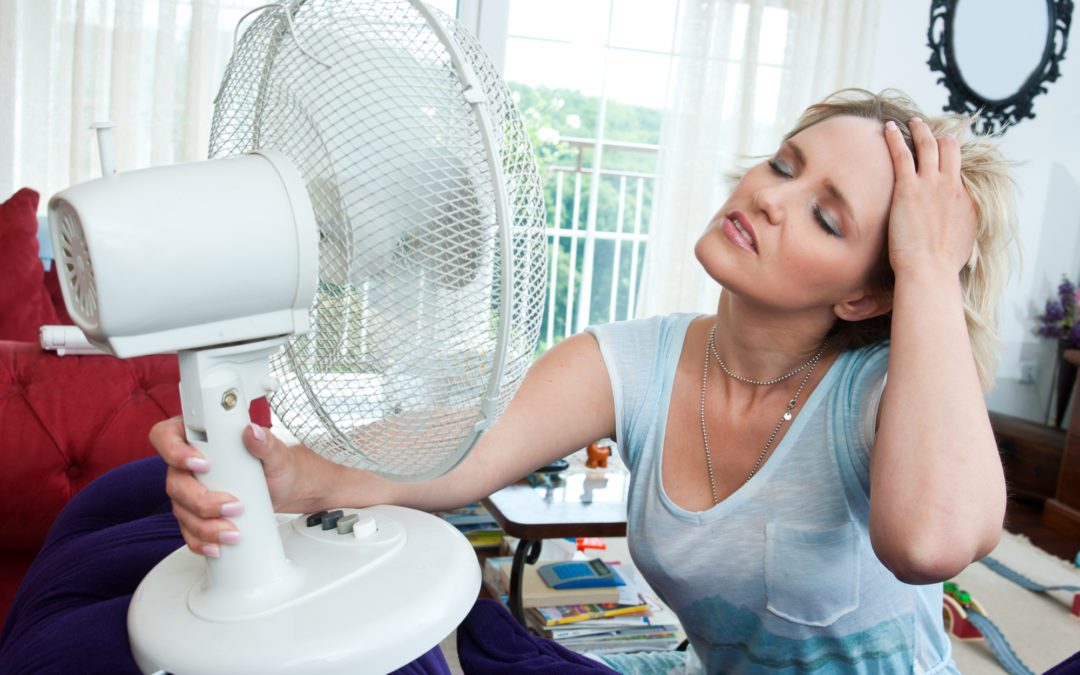As leaders in the air conditioning industry, we often get asked the question, “Why is my home so muggy?” We refer to this feeling as relative humidity, which evaluates humidity with the temperature. It is a frustrating situation to find yourself in, especially when you consider the negative impact it can have on your health.
If any occupant complains about their sinuses feeling stuffy after spending time at home, checking the indoor humidity is advisable, in addition to visiting a physician.
Signs of Excessive Humidity
When the air indoors is too dry, it can lead to excessive static electricity in clothing and carpets. Conversely, too much humidity manifests itself through condensation or frost and ice on the inside of your window frames. You may come across mold spots on the walls or ceilings, which signifies excessive humidity.
Humidity with an Air Conditioner
If you have an operational air conditioner but still find your home humid, it’s a cause for concern. Being uncomfortable or sweating at night shouldn’t be happening, but because hot air holds moisture more than cold air when the air cools down, it becomes more humid, contributing to an unpleasant space.
Possible Causes
It’s highly possible that your air conditioning system isn’t capable of tackling humidity. Many homeowners forget that the job of an HVAC system is more than simply cooling down space – it is supposed to improve comfort levels.
An effective air conditioner combats mugginess by dehumidifying air alongside its cooling duties. However, if your system is operating efficiently, the problem could lie elsewhere. Having too many occupants contributes to higher humidity levels since they’re breathing out warm air and allowing their sweat to enter the immediate atmosphere.
Cooking is another factor responsible for humidity, especially from the water that evaporates during the process. For this reason, you require an extractor to remove warm air and moisture from the room. Taking a shower can be equally as responsible as cooking, so more people include ventilation fans in their bathrooms.
Finally, if conditions are humid outside, it’s highly likely to filter indoors. Opening the windows won’t help since that allows more moisture into your space.
If your air conditioner is aging, it won’t remove humidity effectively. Furthermore, systems that haven’t been maintained regularly will not alleviate the situation.
Ideal Conditions
People are comfortable when the temperature is between 68 F and 72 F, with relative humidity between 30 percent and 50 percent. You can measure humidity with a humidistat. They usually come with a thermometer. However, if you find moisture near the windows, it is too humid and could lead to dust mites and mold development. Additionally, both can cause allergies and discolor surfaces.
Solutions
If you’re one of those people who have asked the question, “Why is my house so muggy?” These solutions could assist. While it may provide you with some relief, you can opt to operate your air conditioner continuously, but it will cause your energy bill to rise steeply. Even though the temperature might be ideal inside, it’s advisable to keep the system running to help fight the mugginess due to the external humidity.
The size of your air conditioner matters and will affect its ability to remove humidity from your home. If you don’t have the appropriate size, you will experience mugginess. Never opt for a system that’s too large or too small. An oversized compressor will constantly turn off and on – not operating long enough to remove humidity. Have a professional do a load calculation to determine if your air conditioner size is correct.
Sometimes, the best air conditioners aren’t enough to dehumidify your home. You can enquire about a separate dehumidifier to add to the current system. This addition will help to remove moisture from the air and your ducts.
Finally, excessive leaks in your ductwork could be the main culprit of humidity in the home. It’s a wise idea to consult with an air conditioning company to inspect your ductwork and clean them if it’s required. Following this practice keeps the system in prime shape and prevents humid air from leaking into your air conditioning system.
Other Steps to Take
Apart from addressing the system itself, you can adopt certain practices to improve indoor air quality and create a healthy space for all occupants. Install extractor fans in your kitchen and bathroom. These areas deal with the most moisture through cooking and taking a shower. When you have these fans in place, it removes added humidity in those rooms, assisting the air conditioner. Try to keep your windows closed as much as possible to prevent humidity from entering.
Conclusion
If the conditions in your home lead you to ask the question, “Why is my home so muggy?” you should seek the assistance of a reputable HVAC company. Valley Comfort Heating and Air is here to help with all your HVAC needs.

